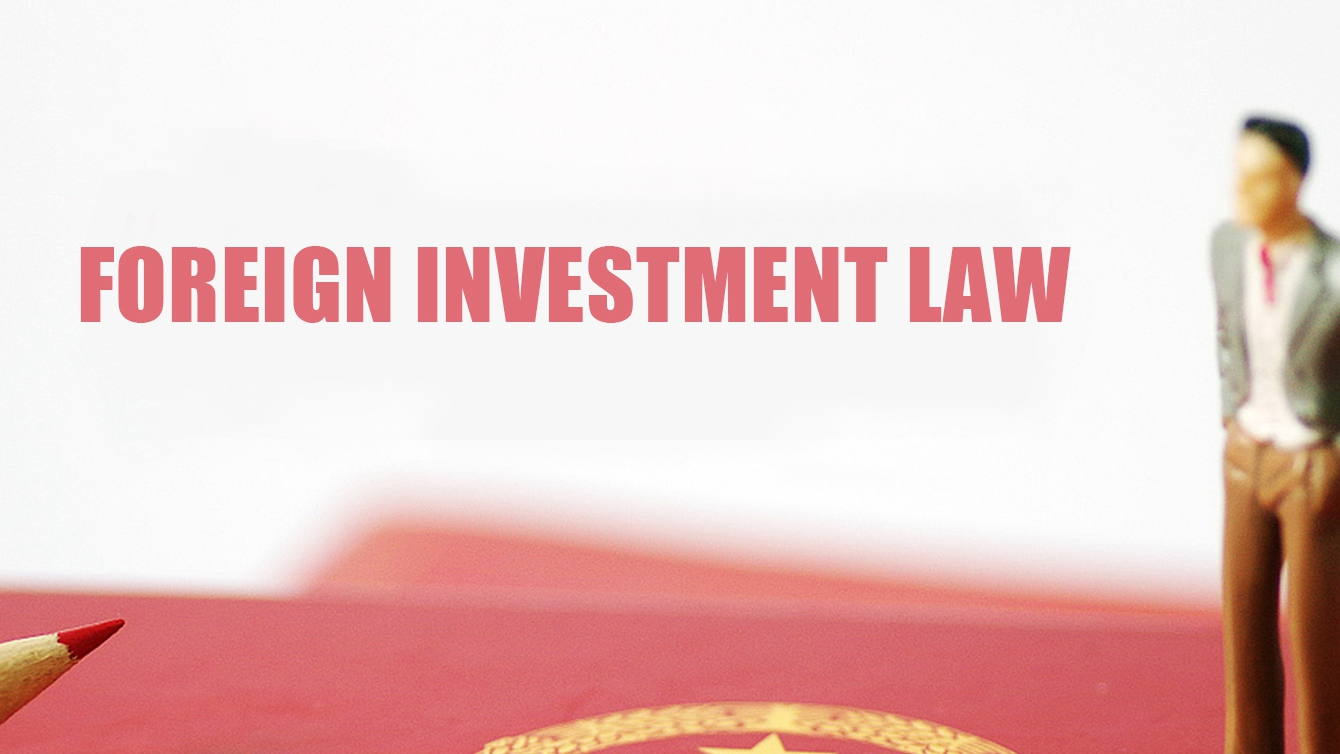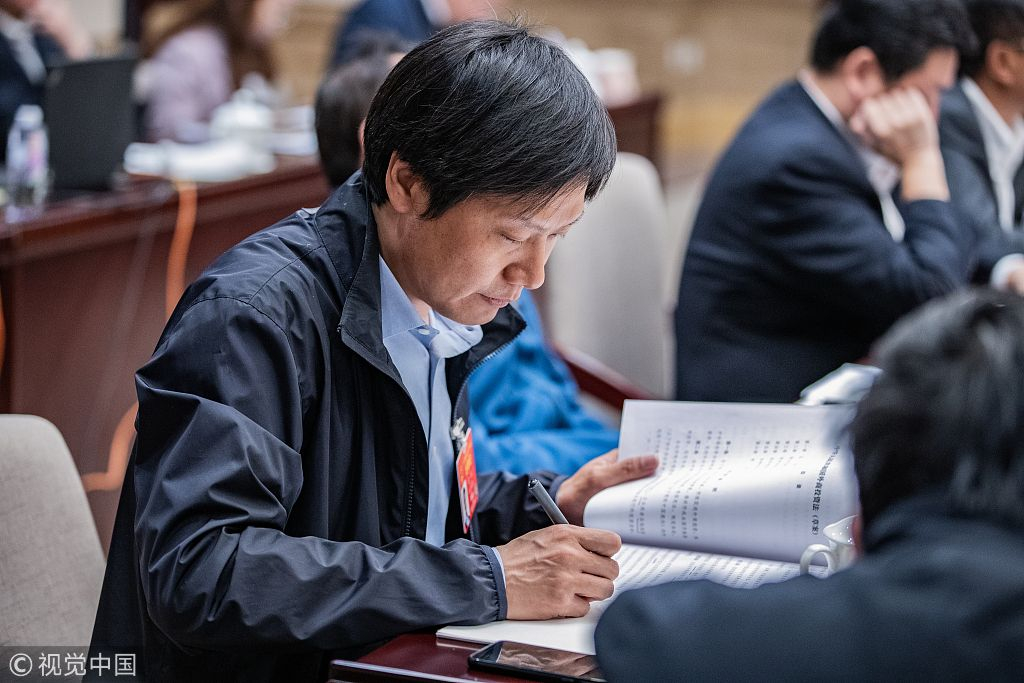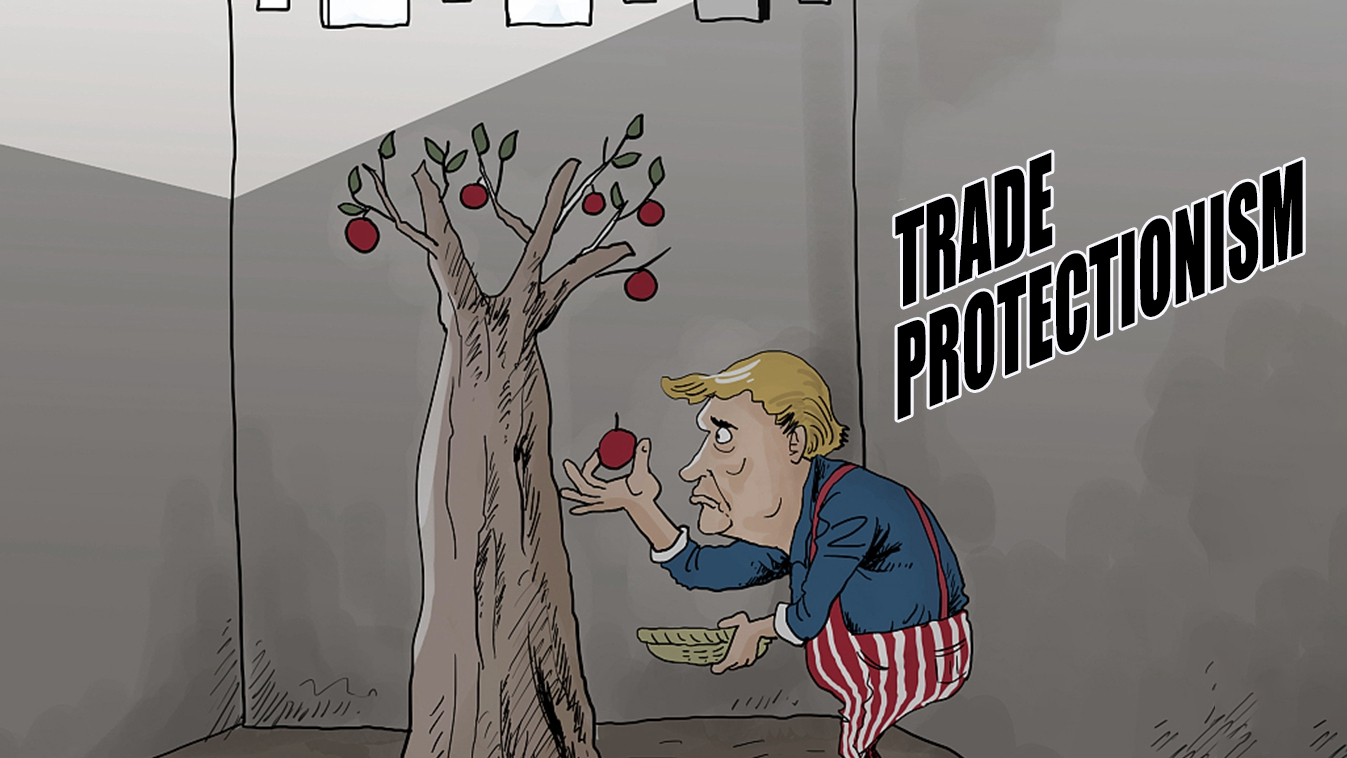
Opinion
23:01, 17-Mar-2019
China's Foreign Investment Law: where optimism meets realism
Adam Garrie

Editor's Note: Adam Garrie is director of the UK-based global policy and analysis think tank "Eurasia Future" and co-host of a talk show "The History Boys." The article reflects the author's opinion and not necessarily views of CGTN.
China is in the midst of a long-planned drive for further economic openness in pursuit of building a moderately prosperous society in all respects. As part of the overall pivot from mass production to high-quality production and innovation model, China seeks not only to cultivate further excellence in domestic research and development but seeks to welcome historically high levels of imported goods as well as ever more foreign direct investment.

Lei Jun, CEO of Chinese phone maker Xiao Mi Corp., reviews the draft of the Foreign Investment Law during the annual session of the National People's Congress in Beijing, China. /VCG Photo
Lei Jun, CEO of Chinese phone maker Xiao Mi Corp., reviews the draft of the Foreign Investment Law during the annual session of the National People's Congress in Beijing, China. /VCG Photo
One of the foundations of reform and opening-up was the creation of Special Economic Zones that helped to fuel China's growth during the 1980s. This has been the foundation of lifting more people out of poverty than had ever been accomplished in history. But lifting nearly a billion people out of poverty was only the beginning.
A moderately prosperous society in all respects is one in which modern sustainable living standards become apparent in both rural and urban areas. It is also a society in which new robotic and AI technologies will function harmoniously with increased people-to-people connectivity.
Moreover, it is one in which China will be open for business in respect of courting foreign enterprise whilst helping to better incentivize domestic excellence through tax reforms and by creating a healthy balance between thriving private enterprise and better-managed state-owned enterprises.
As part of this drive for openness, foreign investors in China will now operate under a simplified process that will see identical legal regulations for foreign investors as those which apply to domestic business owners.
Furthermore, the new law streamlines three previous laws by amalgamating their attributes into a single law to cover all varieties of foreign investment.
Finally, the new law allows for more effective resolution processes to any trading disputes whilst also guaranteeing that intellectual property rights of both Chinese and foreign investors will be protected in a fully transparent and uniform framework.

VCG Photo
VCG Photo
But beyond these facts, the timing of the implementation of the new law is very important.
This is the case because it demonstrates that China's response to a U.S.-led drive towards a protectionist global economic environment has been one that seeks to take an opposite path. While the U.S. threatens to close more trading and investment doors, China is opening up at an increasingly rapid pace.
This is a further symptom of international business conditions in which top companies and investment firms will look to transact in the world's most dynamic economies that have made commitments to allow for simplified, transparent and effective investment opportunities.
While the U.S. is still the world's largest economy, under Donald Trump, America's mentality has shifted from one of predictable openness to one of seemingly emotionally driven nationalism.
As such, China has seen a clear opportunity in the midst of a difficult year for the global economy as a whole. If the U.S. is going to shut its doors, China's best response will be to open its doors. In doing so, China can now court the international trading and investment opportunities that the U.S. has effectively sanctioned itself from based on adherence to long discredited theories regarding protectionism and isolation.
China's model is ultimately an internal phenomenon that has been the result of years of evolving reform and opening-up, as opposed to a reaction to global events. Taken as a whole, China's plans represent what is necessary given the fact that current global conditions have paradoxically aligned in order to create win-win opportunities for China and its partners. These opportunities can help to minimize the existing uncertainties in the world economy and provide much-needed relief for anxious investors.
In this sense, China's new foreign investment law is based on long-term optimism and confidence in a rules-based global economic order and as such, it also offers the most realistic solutions to immediate challenges.
(If you want to contribute and have specific expertise, please contact us at opinions@cgtn.com.)

SITEMAP
Copyright © 2018 CGTN. Beijing ICP prepared NO.16065310-3
Copyright © 2018 CGTN. Beijing ICP prepared NO.16065310-3